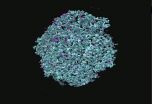Leading nursing journal finds mothers and babies benefit from skin-to-skin contact
Skin-to-skin contact supports breastfeeding, bonding and better health outcomes
2014-11-11
(Press-News.org) Research during the past 30 years has found many benefits of skin-to-skin contact between mothers and newborns immediately after birth, particularly with aiding breastfeeding. However, in some hospitals, skin-to-skin contact following cesarean birth is not implemented, due to practices around the surgery. A recent Quality Improvement (QI) project demonstrated that women's birth experiences were improved by implementing skin-to-skin contact after cesarean surgery.
Women who give birth by cesarean often have more difficulty with breastfeeding, and skin-to-skin contact can make breastfeeding easier by relaxing the mother and baby, enhancing their bond, and helping the baby to latch better. Additional potential benefits of skin-to-skin contact for infants include less cold stress, longer periods of sleep, improved weight gain, better brain development, a reduction in "purposeless" activity, decreased crying, longer periods of alertness, and earlier hospital discharge.
In "A Quality Improvement Project Focused on Women's Perceptions of Skin-to-Skin Contact After Cesarean Birth", Judith Ann Moran-Peters, RN, NE-BC, BC, and her coauthors write about a QI project to implement skin-to-skin contact following cesarean birth and to measure women's perceptions in contrast with previous cesarean births without immediate skin-to-skin contact. This article appears in the August/September 2014 issue of Nursing for Women's Health, the clinical practice journal of the Association of Women's Health, Obstetric and Neonatal Nurses (AWHONN).
"Nurses working in labor and birth settings should promote the practice of skin-to-skin contact between women and their newborn infants immediately following birth, given the significant health benefits associated with this experience," write the authors. "The moments right after birth represent the ideal timeframe for initiating breastfeeding, which generates important health benefits for the baby."
The authors advise that while there may be several challenges in implementing a protocol for skin-to-skin contact following a cesarean birth, a collaborative group of clinicians can identify and eliminate these barriers. One example is newborns not joining their mothers in a regular room until a significant amount of time has passed after birth. Additional barriers faced by women who have cesarean surgery include sterile draping from the surgery and mental fatigue from pain and sedation medications. The positive benefits of skin-to-skin contact for newborns and moms call for action to be taken by healthcare providers to minimize barriers and make skin-to-skin contact a priority.
"Nurses can help identify and eliminate barriers to skin-to-skin contact following cesarean surgery and raise this as a priority for improvement," said AWHONN's CEO, Lynn Erdman, MN, RN, FAAN. "The health benefits of skin-to-skin contact along with breastfeeding are well understood, so expanding this practice to cesarean births is a natural improvement for practice and patient health."
INFORMATION:
About Nursing for Women's Health
Nursing for Women's Health is a bimonthly refereed clinical practice journal of the Association of Women's Health, Obstetric and Neonatal Nurses. The journal circulates to more than 25,000 nurses who care for women and newborns and is available online at http://nwh.awhonn.org.
About AWHONN
The Association of Women's Health, Obstetric and Neonatal Nurses (AWHONN) is the foremost nursing authority that advances the health care of women and newborns through advocacy, research and the creation of high quality, evidence-based standards of care. AWHONN strives to represent the interests of 350,000 registered nurses working in women's health, obstetric and neonatal nursing nationwide.
AWHONN's 24,000 members worldwide are clinicians, educators and executives who serve as patient care advocates focusing on the needs of women and infants. A leader in professional development, AWHONN holds the distinction of receiving the Premier Program award by the American Nurses Credentialing Center (ANCC) for innovation and excellence in Continuing Nursing Education (CNE) three times.
Founded in 1969 as the Nurses Association of the American College of Obstetrics and Gynecology, the association became a separate nonprofit organization called the Association of Women's Health and Neonatal Nurses in 1993.
Visit AWHONN on Facebook.
ELSE PRESS RELEASES FROM THIS DATE:
2014-11-11
Consumers place great faith in weight loss pills and remedies, buying and using them more than ever before. American obesity rates, however, are skyrocketing. According to a new study in the Journal of Public Policy & Marketing, false beliefs about these drugs are causing Americans to gain more weight.
"Weight management remedies that promise to reduce the risks of being overweight may undermine consumer motivation to engage in health-supportive behaviors," write authors Lisa E. Bolton (Pennsylvania State University), Amit Bhattacharjee (Dartmouth College) and Americus ...
2014-11-11
Why do some chemical farmers resist a profitable conversion to organic methods? A new study in the Journal of Marketing suggests it may be because making that change feels like switching belief systems.
"The ideological map of American agriculture reveals an unfolding drama between chemical and organic farming," write authors Melea Press (University of Bath), Eric Arnould (Southern Denmark University), Jeff Murray (University of Arkansas) and Katherine Strand (McGill University). "Chemical farmers argue that to make money, one must follow chemical traditions; when organic ...
2014-11-11
As obesity rates rise, health professionals and policy makers scramble to help consumers resist unhealthy eating choices, often focusing on better labeling and improved nutritional knowledge. According to a new study in the Journal of Marketing Research, however, training people to pay attention to their emotions is a far more powerful strategy.
"Consumers are often mindless," write authors Blair Kidwell (Ohio State University), Jonathan Hasford (Florida International University) and David M. Hardesty (University of Kentucky). "We not only demonstrate that emotional ...
2014-11-11
The American obesity epidemic is out of control, and health advocates are working hard to ensure that food labels clearly list calorie content and all unhealthy ingredients. But according to a new study in the Journal of Marketing Research, labeling alone contributes little to healthier eating decisions unless the item also costs more.
"Obesity rates have more than doubled in the past two decades, and large-scale interventions are necessary to dissuade people from consuming unhealthy food," write authors Avni M. Shah (Duke University), James R. Bettman (Duke University), ...
2014-11-11
Cities around the world are pouring money into beautiful bicycle paths in hopes of convincing citizens to drive less and bike more. According to a new study in the Journal of Public Policy & Marketing, however, getting people to go from four to two wheels isn't quite that simple.
"Although bicycling is a widely accepted way to travel around cities in Germany, Denmark, and the Netherlands," write authors Marius C. Claudy (University College, Dublin) and Mark Peterson (University of Wyoming), "it is still the most underutilized form of transportation in countries such as ...
2014-11-11
Reserve's borders have erroneously moved 50 kilometers
New species, named after the Luama Katanga Reserve, is now threatened by cattle ranches and forest destruction
NEW YORK (November 11, 2014) - WCS scientists in the Democratic Republic of Congo (DRC) have discovered a new species of plant living in a remote rift valley escarpment that's supposed to be inside of a protected area. But an administrative mapping error puts the reserve's borders some 50 kilometers west of the actual location. Now the new species, along with 900 other plant varieties and 1,400 chimpanzees, ...
2014-11-11
For their study, the researchers were able to fall back on uninterrupted long-term temperature measurements of groundwater flows around the cities of Cologne and Karlsruhe, where the operators of the local waterworks have been measuring the temperature of the groundwater, which is largely uninfluenced by humans, for forty years. This is unique and a rare commodity for the researchers. "For us, the data was a godsend," stresses Peter Bayer, a senior assistant at ETH Zurich's Geological Institute. Even with some intensive research, they would not have been able to find a ...
2014-11-11
Many businesses now offer customers the opportunity to make charitable donations to good causes along with their purchases, but does this really encourage the customer to buy more? According to a new study in the Journal of Marketing, the answer is a firm "Yes."
"The mere presence of a charitable donation opportunity can generate significantly more sales," write authors Michelle Andrews (Temple University), Xueming Luo (Temple University), Zheng Fang (Sichuan University) and Jaakko Aspara (Hanken Swedish School of Economics). "Offering the donation nearly doubled the ...
2014-11-11
When consumers see a company performing good deeds, they often assume that the company's products are healthy. According to a new study in the Journal of Public Policy & Marketing this may be far from true, and the company's socially responsible behavior may be creating a "health halo" over unhealthy foods.
"Research demonstrates that consumers frequently engage in inference making when evaluating food products. These inferences can be highly inaccurate, leading to unintended, unhealthy consumer choices," write authors John Peloza (University of Kentucky), Christine Ye ...
2014-11-11
A novel method of altering a protein in milk to bind with an antiretroviral drug promises to greatly improve treatment for infants and young children suffering from HIV/AIDS, according to a researcher in Penn State's College of Agricultural Sciences.
That's critical because an estimated 3.4 million children are living with HIV/AIDS, the World Health Organization reports, and nine out of 10 of them live in resource-limited countries in sub-Saharan Africa, where effective antiretroviral treatments still are not widely accessible or available. International medical experts ...
LAST 30 PRESS RELEASES:
[Press-News.org] Leading nursing journal finds mothers and babies benefit from skin-to-skin contact
Skin-to-skin contact supports breastfeeding, bonding and better health outcomes

